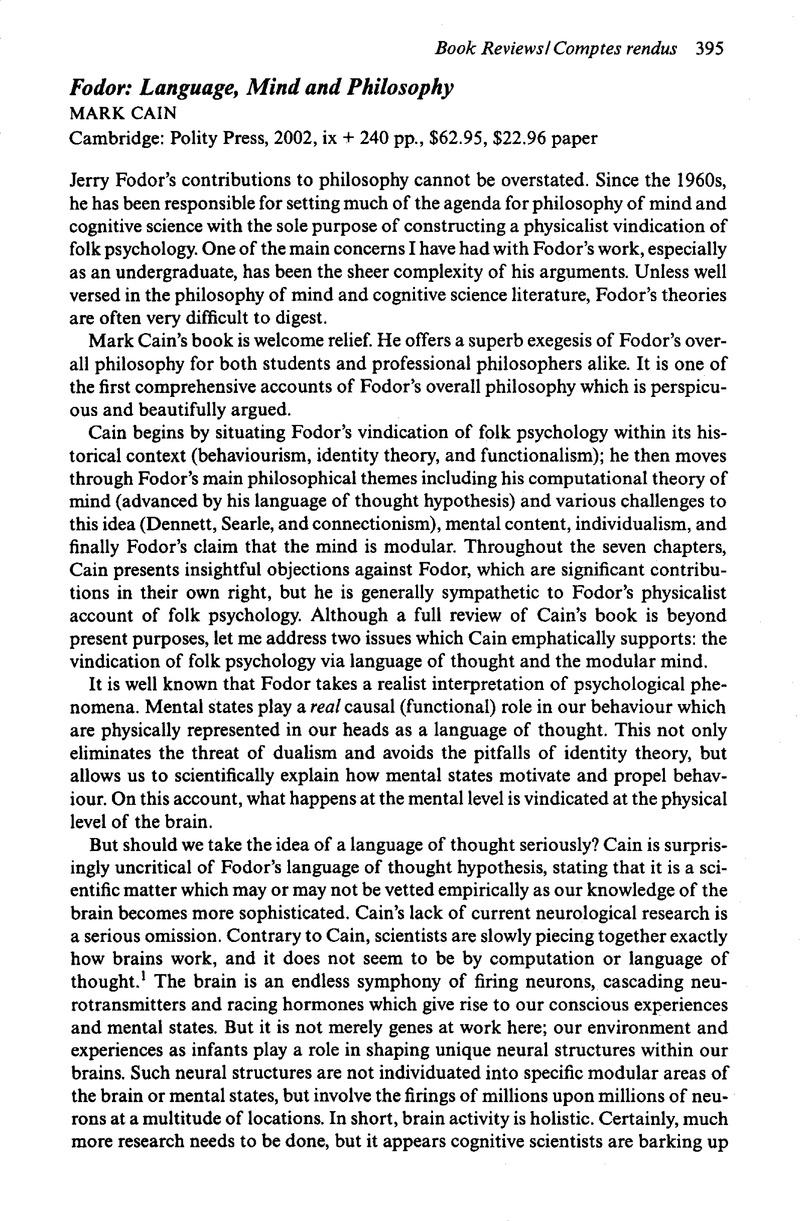No CrossRef data available.
Published online by Cambridge University Press: 13 April 2010

1 See, for example, Churchland, Patricia, Neurophilosophy: Toward a Unified Science of the Mind-Brain (Cambridge, MA: MIT Press, 1986)Google Scholar; Edelman, Gerald, Bright Air, Bright Fire: On the Matter of the Mind (New York: Basic Books, 1992)Google Scholar; and Greenfield, Susan, The Private Life of the Brain: Emotions, Consciousness and the Secret of the Self (New York: John Wiley & Sons, 2000)Google Scholar.
2 For a detailed account of this objection, see Lyons, William, Approaches to Intentionality (New York: Oxford University Press, 1995).Google Scholar
3 Research by Lillard, Angeline in her “Ethnopsychologies: Cultural Variations in Theories of Mind” (Psychological Bulletin, 123 [1998]: 3–32)CrossRefGoogle Scholar shows that many cultures do not share the same zest for psychological explanation and some even consider the mind as unimportant. Lillard presents a smorgasbord of theories of mind from around the world which are interesting and informative. The upshot undercuts any claims that belief/desire psychology is universal.